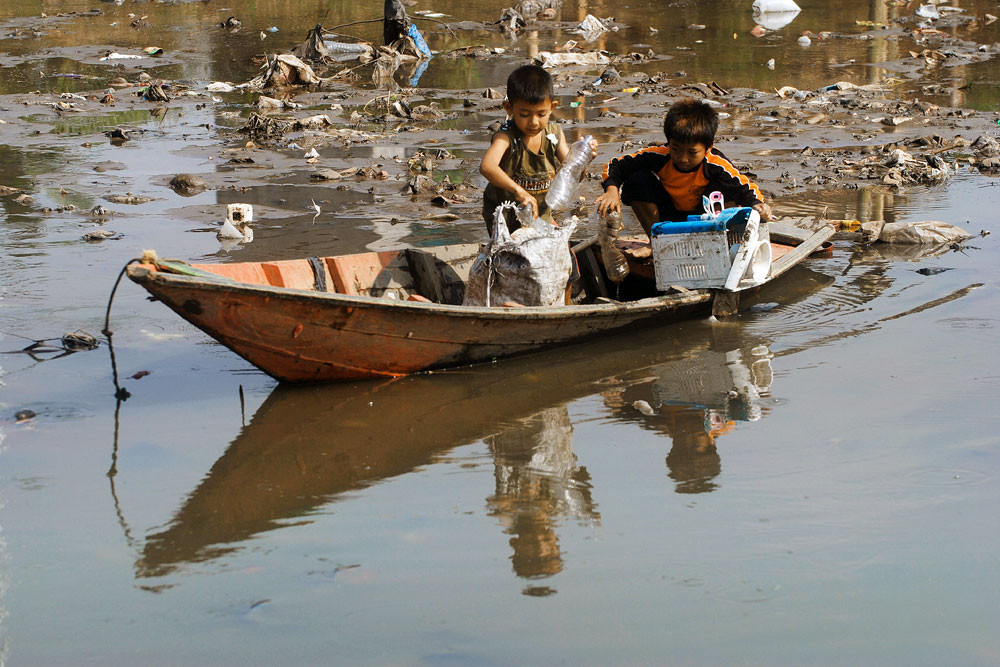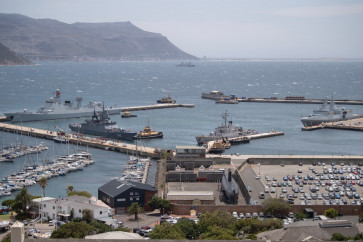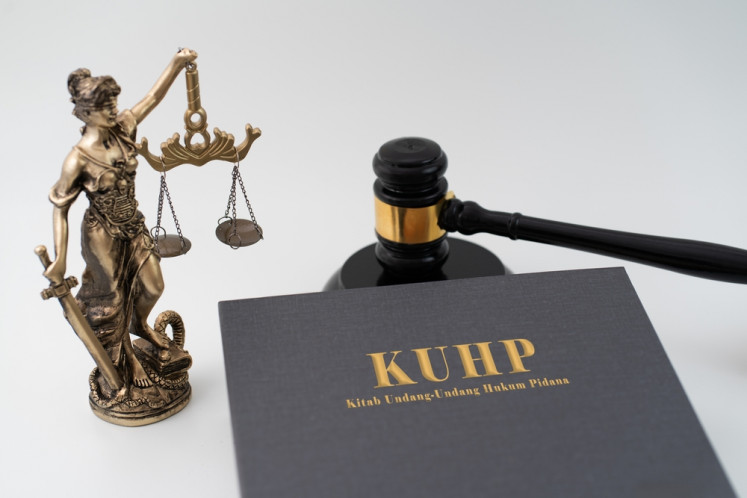Popular Reads
Top Results
Can't find what you're looking for?
View all search resultsPopular Reads
Top Results
Can't find what you're looking for?
View all search resultsCitarum River rehabilitation disrupted by COVID-19
Change text size
Gift Premium Articles
to Anyone
P
rojects to rehabilitate the Citarum River in West Java, the country’s dirtiest river, continue despite disruptions caused by the ongoing COVID-19 pandemic.
Stretching 270 kilometers, the Citarum supplies water to households and industries in West Java and Jakarta. It is also the source of power for three hydroelectric plants that can generate a combined 1,400 megawatts of electricity. Despite being crucial to at least 27 million people in the two provinces, the Citarum earned the status of being the most polluted river in the country for its alarming levels of toxic chemicals due to industrial and household waste being dumped into it for a long time.
Responding to the ever growing pollution of the river, President Joko “Jokowi” Widodo established a restoration campaign called the Citarum Harum in 2018.
The campaign, led by the West Java governor, involves the central government, local administrations, the police and even the military. It aims to control and mitigate pollution and environmental degradation in Citarum watershed areas to restore them to their original function. It has a seven-year time frame with the target of improving the river's water quality by 2025.
The campaign lists up to 13 programs, including river basin rehabilitation, waste processing, law enforcement and education for people living along the river.
West Java secretary Setiawan Wangsaatmadja said that almost all of the programs were either under way or ready to be rolled out when COVID-19 spread to the country in March. The virus crisis has since forced West Java to reallocate most of its regional budgets to fund the COVID-19 response, leaving the Citarum projects with shoestring budgets and putting most of them on hold.
“Our action plans were made before COVID-19. Whether we wanted it or not we had to review them,” Setiawan told The Jakarta Post on Tuesday.
He said that of the planned Rp 5.6 trillion (US$381.87 million) budget for the Citarum rehabilitation this year, only around 7 to 10 percent of the money was left for the programs.
Preliminary data show that the Citarum's water quality has slightly improved due to reduced factory activity during the pandemic and the rainy weather, and, therefore, West Java was determined to continue any feasible rehabilitation programs during the pandemic, Setiawan said.
Companies polluting the Citarum may face out-of-court administrative penalties from the West Java authorities -- from warnings to sealing of facilities and suspension of operations -- and lawsuits at court.
The West Java administration has so far imposed sanctions on at least 210 companies polluting the river, from a total of 468 companies on the 2019 watch list, according to Setiawan.
Earlier this month, a team from the Citarum Harum project inspected a section of the river from Walahar to Klari in West Java’s Karawang regency, following reports that the water had been black and emitting a strong odor, and that fish had died due to the pollution.
The central government, through the Environment and Forestry Ministry, has taken a number of companies to court for allegedly polluting the river, most recently PT How Are You Indonesia (HAYI), a company based in Cimahi, West Java.
In February, the North Jakarta District Court found HAYI guilty of polluting the environment, ordering the company to pay Rp 12 billion in environmental damages.
“Neither side [the ministry nor HAYI] filed an appeal and the company is willing to pay compensation for the damages in installments,” the ministry's director for dispute settlement Jasmin Ragil told the Post.
The company paid the first Rp 2.13 billion installment on July 24 and promised to pay the rest in installments over the next 10 months, according to Jasmin.
Also in February, the Bale Bandung District Court found PT Kamarga Kurnia Textile Industry (KKTI) guilty of polluting a section of the Citarum River and ordered it to pay Rp 4.2 billion in compensation for the damage, in a lawsuit filed by the environment ministry.
The Bale Bandung District Court currently has been handling two more cases filed by the ministry -- a lawsuit against PT Kawi Mekar in which the two sides have reached a settlement; and an ongoing case against PT United Colour Indonesia.
The Indonesia Institute of Sciences (LIPI), meanwhile, planned to launch a series of independent research studies on the Citarum, which had been postponed to 2021 as a result of the pandemic, said its limnology research center head Fauzan Ali.
“We are planning to create a decision support system, or DSS, to model what problems existed and what happened to the water,” Fauzan told the Post.
LIPI, he said, sought to calculate how much waste entered the Citarum, simulate the conditions of wet and dry seasons to determine how much the river could handle pollutants and develop solutions for communal waste treatment plants (IPAL) for domestic waste from small businesses and agriculture.
“Those are some of the plans that we wanted to do because cleaning up the river in a seven-year time frame would not solve the problem [of Citarum pollution] and pollution will return in the future,” he said.










